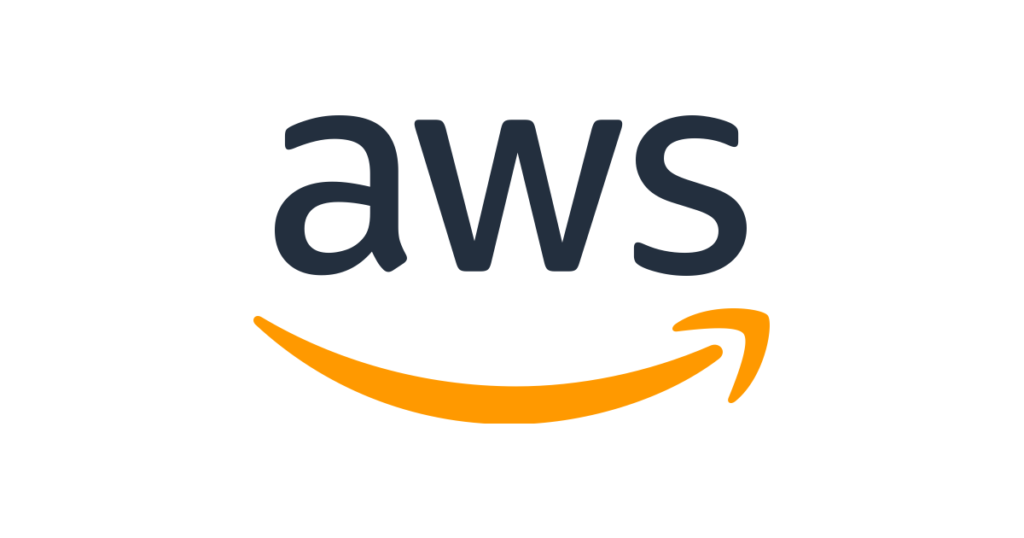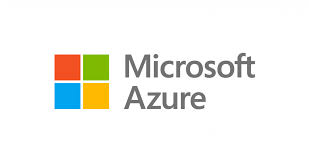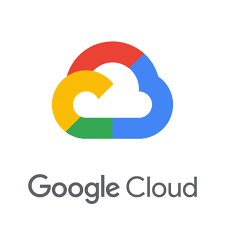Public cloud service, used by the enterprise sector is growing exponentially, with an expected overall spend of $304.9 billion in 2021 Gartner November 2020. There is no doubt that the Covid crisis has accelerated the move to cloud based services during 2020, however, projections for the next few years are showing that many enterprise strategies will remain and increase their reliance on such cloud infrastructures, rather than the traditional in-house server.

The benefits to cloud based services for enterprises are many; including no capital expenditure, it’s flexibility in upscaling/downscaling to fit in with fluctuating business demand and, as we have seen over the course of 2020, the flexibility over remote access. Security is also a key factor in making the decision to move cloud-ways, as the threat is indiscriminate and costly to maintain defences and continuity.

About the Author
Melusi Phiri is a Senior Account Manager, helping clients of all sizes, across sectors to find and make best use of technology. Melusi can advise on the full technology stack, including cloud, application modernisation, security, networking and remote working solutions.
The public cloud market is broken into 6 main areas:
Cloud Business Process Services (BPaaS) ‘business process as a service’
Cloud Application Infrastructure Services (PaaS) ‘platform as a service’
Cloud Application Services (SaaS) ‘software as a service’
Cloud Management and Security Services
Cloud System Infrastructure Services (IaaS) ‘infrastructure as a service’
Desktop as a Service (DaaS)
The type of cloud services we will focus on in this blog are Infrastructure as a Service (IaaS). This particular segment of the market is expected to reach $65m in 2021 and $82m in 2022 Gartner Nov 2020.
As with any emerging market, there is an increase in cloud service providers, making it a moving feast in terms of service provision. Currently there are 3 cloud providers who own around 59% of the IaaS market Canalys Feb 2021. Coming in at no.1 is Amazon’s AWS, followed by Microsoft and then Google. Another provider hot on their heels is Alibaba Cloud. What sets these providers apart from other competitors in the market, is their completeness of service and flexibility. However, it is important to remember that one solution does not fit all. As with other IT solution providers, some cloud services are more suited to specific industries than others, so it is important to understand strengths and weaknesses and what suits your infrastructure needs.
Breaking it down by provider
Amazon Web Services (AWS) is a cloud service provider that uses Amazon’s own infrastructure and experience. Rather than being a division of the company, like Microsoft’s Azure, AWS is a subsidiary company of Amazon. All the storage and computing resources come from a distributed network of data centres, spread across the globe, to facilitate less latency and a better experience for end-users.
AWS is the hosting service provider of choice for a lot of global enterprises and well-known companies, including Netflix, Facebook, and the BBC; which will no doubt give many other enterprises the confidence to use the same.
Although AWS is a force to be reckoned with there are signs of it slowing against its competitors: Microsoft, Google and Alibaba, who are growing at a much faster rate. Plus, there is also an indicator suggesting that many companies prefer to spread their risk when it comes to cloud services and choose more than one provider.
One of the oldest in the market with over 12 years of experience, AWS offers a number of features and benefits that make up their Infrastructure-as-a-service platform. Responding to market pressures and their competitors, AWS have recently changed to on-demand billing for services used, making them a much more attractive option as IT business leaders look for more cost effective solutions.
AWS Features
There are 4 main services to its clients.
- Storage and content delivery
- Compute services
- Database
- Networking
Tried and tested Amazon products like active directory and AWS CloudHSM’s key storage, allow AWS customers to generate and use their own encryption keys via the AWS Cloud.
Benefits of AWS
A partnership with AWS will allow customers access to the following benefits:
- Broadest range of cloud service offerings for enterprise businesses over competitors
- Increased business agility
- Customisable EC2 compute engine
- A number of EC2 integrations, like Elastic Beanstalk for container service and Lambda
- Services a number of high-profile, blue chip customers
- Geared toward open source developers
- Supports commonly used development languages
- Can be deployed anywhere
Cons
- Depending on the comfort level of enterprise businesses with AWS services, a steep learning curve may exist
- Enterprise level support must be purchased
- AWS was late to get on the on-demand billing for services bandwagon
- AWS doesn’t have a strong hybrid cloud strategy for those businesses that want to keep sensitive data in a private cloud
- The wide catalogue of offerings can be overwhelming and difficult to navigate for some users
Microsoft Azure
Despite Azure’s launch being sometime after AWS in 2011, it is considered to be hot on AWS’s heels, vying for top spot in the market. Microsoft Azure has quickly built a leading reputation.
Azure Features
- Build websites in the cloud, using common programming languages
- Integrations include Windows Server and Linux Virtual Machine
- Migration assistance
- SQL database support
- Focal point is Virtual Machine capabilities supported by tools that include Cloud Services and Resource Manager
- Machine learning
Benefits of Azure
- Quick to deploy, operate, and scale
- Increases business agility
- Has the bandwidth to take your business global
- Visual Studio development environment built in
- Supports integration
- Supported by secure login with Azure Single Sign-On
- Microsoft is no stranger to industry compliance standards
- Deploy anywhere
Cons
- Outages have occurred causing experts at Gartner to suggest a good disaster recovery plan for Azure users
- Functions seem limited when compared against AWS
- Set up to support Windows; if you want to run something else Azure may not be the best option
- Requires enterprise management from customers
As mentioned above, the occurrence of outages isn’t limited to Microsoft Azure. However, Microsoft has gone a long way to inspire confidence and trust in enterprise businesses, fulfilling its reputation for high quality service.
Microsoft’s culture and position as a long-time leader in technology means Azure, by design, caters to the needs of various industries and their unique specifications.
Google Cloud Platform (GCP)
An industry trailblazer in web based services and internet, Google dominates in the deployment of web-based services. Does it offer something different from the top 2? It’s innovation and open source background would suggest Google Cloud Platform (GCP) might have an edge.
GCP Features
Google’s cloud suite of tools includes:
- Google App Engine to build apps within the cloud
- Supports common coding languages
- Open source cloud environment
- Offers robust data analysis
- Google Cloud Bigtable no SQL database supported
- Emphasis on big data tool suites
- Allows users to create single-purpose functions that decrease the need for management
- CloudKMS offers security via encryption
- Cloud storage is a RESTful service for storing and retrieving data
- Migration assistance
Benefits of GCP
Google Cloud offers the following benefits to customers:
- Quick deployment and access to updates and functionality
- Increased business agility
- Continuous improvement allows Google to update the cloud without disruption to users
- Primed to facilitate collaboration
- Ownership of data
- Scalable
- Deploy anywhere
Cons
- Supporting large, enterprise projects has not been a focus for Google, unlike companies such as Microsoft
- Outages have made some wonder if the product is reliable
- Range of functions lacks innovation
- Google is a forward-thinking company with a lot to offer enterprise businesses. However, they have their hands in so many small project innovations, which means limited options for larger companies.
Reassuringly Google Cloud’s policy for users to extract their own data in Google apps should they decide to move providers in the future may well help potential users make a decision. This is not the case with other providers, where it can become very expensive to extract data, should you choose to move providers.
Industry Specific Cloud
Optimised and customised ‘Industry-specific Cloud’
In recognition of the differing needs of businesses when it comes to infrastructure, industry-specific clouds have been tailored to fit the typical requirements and specific needs that customers will experience in daily operations inside a vertical market, where a general cloud offering does not.
These tailored clouds are engineered to be delivered with specific performance optimisations, but also with customised functions that are tuned to specific operational, legal, regulatory, commercial considerations found in a customer’s specialised market.
Among mainstream providers, investment is increasing in industry specific cloud, as growth in the market for general-purpose cloud computing has lessened, prompting public cloud vendors to address industry-specific needs in order to maintain growth.
Industry specific cloud solutions from the ‘leading three’ public cloud providers act as a bridge to their fully matured cloud solutions for businesses requiring additional options or features.
Summing up
Today, the clear market leader in functionality depth and breadth is AWS. This is partly because they have the maturity in the market and the experience to deliver, but competitors like Microsoft and Google aren’t too far behind.
In particular, Microsoft continues to gain headway on AWS. This is especially true because they are a trusted name in enterprise computing with a reliable model for those that already use Microsoft products or languages across the enterprise organisation. Google also has a lot to offer in terms of innovation and might be a good fit for those in the open-source cloud community, that focus on smaller projects.
The public cloud market is still developing, and the last twelve months has certainly given it a boost – and indeed an indicator as to where enterprise infrastructure provision is going.
The main 3 competitors in the market offer solid provision and that is borne out by their client lists and their increasing market share. What is also apparent are the risks of getting tied in with the wrong provider, especially if you require a greater level of support or your business no longer fits the service provision you’ve signed up to and you wish to extract yourself.
Reassuringly, it appears that industry specific cloud is well on its ascendency, making the choice of provider a little easier. However, when it comes to cloud technology, it’s one thing to choose your provider and another actually making it happen. We would advise businesses considering the move to cloud to have a third party who understands your business needs and can map those needs to your technical environment. With AWS and the larger providers, even if you get someone on the phone, they will likely not know your environment or your business. This causes delays in fixing any issues you have and more often than not will lead to business consequences.
Pendulum IT works with leading public cloud providers including AWS, Microsoft Azure and Google Cloud Platform (GCP) and is well positioned to help customers plan, migrate, optimise and manage their cloud infrastructure over the full lifecycle of IT projects and business requirements.
About Us

Pendulum is a leading IT company providing services, hardware and software across the UK and internationally. For further information on remote working, public cloud hyperscalers, cybersecurity, modernising the data centre, HCI or any other area please contact your account manager or email info@pendulum-it.com



